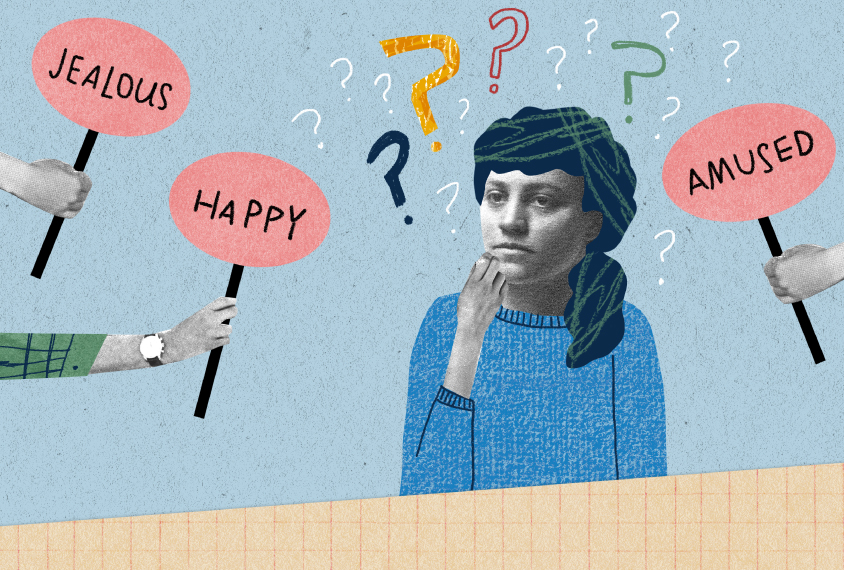Katherine Gotham is assistant professor of psychiatry at Vanderbilt University in Nashville, Tennessee.
Katherine Gotham
Assistant Professor of Psychiatry
Rowan University
From this contributor
Measuring alexithymia in autistic people
Despite the growing interest in alexithymia in autism research, the tools commonly used to measure this trait may not work reliably in autistic populations. A new scoring method fills that gap.

Measuring alexithymia in autistic people
Suicidal tendencies hard to spot in some people with autism
To effectively screen for suicidality in people with autism, we need to learn how to ask questions that lead to real answers.

Suicidal tendencies hard to spot in some people with autism
Understanding aggression in autism
Two new studies explore the link between autism and aggression — a controversial connection that weighs heavily on individuals with the disorder and their families.

Understanding aggression in autism
How persistent worrying might cause the blues
When individuals with autism see themselves as impaired and get stuck on those thoughts, they may become and stay depressed, says Katherine Gotham.

How persistent worrying might cause the blues
Explore more from The Transmitter
Astrocytes orchestrate oxytocin’s social effects in mice
The cells amplify oxytocin—and may be responsible for sex differences in social behavior, two preprints find.

Astrocytes orchestrate oxytocin’s social effects in mice
The cells amplify oxytocin—and may be responsible for sex differences in social behavior, two preprints find.
Neuro’s ark: Spying on the secret sensory world of ticks
Carola Städele, a self-proclaimed “tick magnet,” studies the arachnids’ sensory neurobiology—in other words, how these tiny parasites zero in on their next meal.

Neuro’s ark: Spying on the secret sensory world of ticks
Carola Städele, a self-proclaimed “tick magnet,” studies the arachnids’ sensory neurobiology—in other words, how these tiny parasites zero in on their next meal.
Autism in old age, and more
Here is a roundup of autism-related news and research spotted around the web for the week of 2 March.

Autism in old age, and more
Here is a roundup of autism-related news and research spotted around the web for the week of 2 March.